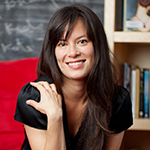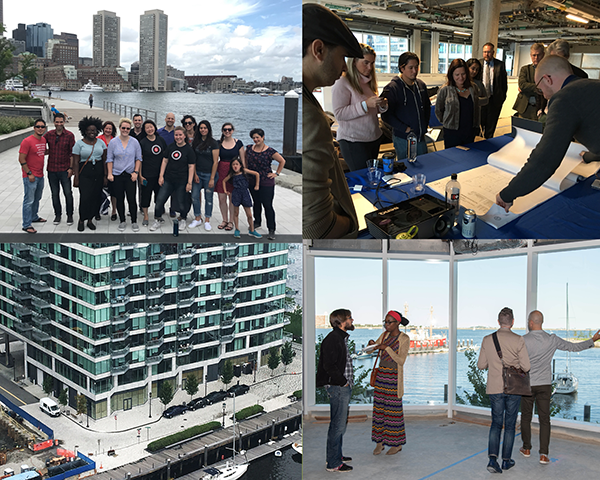What can one of the nation’s leading creative writing centers teach us about resilience and showing up to create? A lot.
So many writers I speak to are trying hard to create amidst incredible disruption to their lives. They are short on resources like time and energy. They aren’t sure what the landscape of their writing life will look like because so much seems to be constantly changing.
 Today I want to share some wisdom from writer Sonya Larson. She has worked at GrubStreet in Boston — an amazing writing center — for nearly 15 years, and writes short fiction, essays, and is currently working on her first novel. She and I were discussing how sometimes writers resist the hard work of writing because it can be isolating and challenging. They struggle to sit down at home and just write.
Today I want to share some wisdom from writer Sonya Larson. She has worked at GrubStreet in Boston — an amazing writing center — for nearly 15 years, and writes short fiction, essays, and is currently working on her first novel. She and I were discussing how sometimes writers resist the hard work of writing because it can be isolating and challenging. They struggle to sit down at home and just write.
Instead, they may embrace situations that make them feel the rush of what it means to be a writer — attend readings, visit bookstores, go to writing conferences, or writing retreats. You know, these beautiful places, filled with literary people.
To be in these places is to wrap yourself in a warm hug of books, writing, and all we can aspire to as writers.
Which is different from sitting at your kitchen table, dishes piled up, kids arguing in the next room, and trying to write your novel.
But Sonya said something that I have been thinking about all week:
“I’ve been to two writing residencies in my life, and they were beautiful and wonderful. I loved them, they were so immersive and a great experience. But if I’m really being honest, what I produced during that time was not as significant as what I had to produce when I was forced to write on the city bus, because I had a deadline and I was freaking out.”
I have heard similar experiences from so many writers. The way we hope to be able to create rarely matches up to our reality. The work of writing happens between those two things. Amidst compromise. That doesn’t have to be a bad thing. Sonya explained how sometimes deadlines and a sense of excitement actually helps her writing. They are motivators that help her get the work done.
As a writer, each of us has to discover and hone our own creative process. But this also applies to how we share our work. To not only create alone, but to share your voice and allow others to discover it.
That’s something that she and her co-workers at GrubStreet are in the midst of solving as well. You see, GrubStreet runs 600 workshops a year, have 1,000 people attend their conference, and are moving to a brand new 15,000 square foot facility. Much of what they do is about creating, sharing, and in-person collaboration is a core way they do it. Of course, they have had to reinvent, now offering a wide array of classes for writers remotely.
Last week I talked about being in transition, and that feels like a word that describes some of what Sonya shared about her work as well.
I asked her how they are keeping GrubStreet’s community of writers energized and motivated through the pandemic. She replied:
“It boils down to the simple creative process of working within constraints. The conversation now is: How do we play to the strengths of this format, given the fact that we can’t meet in person for a large gathering for some time? How can we make the most use of our analog lives, our virtual lives, to deliver to writers what they are needing and wanting right now?”
“It reminds me of the task we all have as writers: there will inevitably be something in our way. We can get mad and stew at it, but ultimately the best artists pick up what’s left, if anything, and generate something new and exciting that we never would have been prompted to otherwise. It creates all of these new opportunities.”
I love Sonya’s perspective on this.
She and I talked quite a bit about how does one grow while also staying focused on your core mission. For an individual writer, this can have them frozen, unable to make the choice between ideas for different books, different paths to publication, or how to best share their work.
For GrubStreet, we can see their growth in a physical way, and I was trying to imagine how they keep the core of their community while also expanding their offices.
They are moving into a 15,000 square foot space later this year, that includes more classrooms, a literary stage, cafe, and bookstore. I was looking at these photos on their website of the new space in construction:

That looks amazing, right? But amidst this is also a risk the must navigate: to not lose the delicate thing that makes GrubStreet so special. I asked Sonya about how they are navigating change without losing themselves within it:
“I think our success has always hinged on the idea that community comes first. Our programs are based on what the community is asking for. We always follow the lead of the people serve.”
“I’ve been with GrubStreet for almost 15 years now. When I first began, the staff size was 1.5, a tiny little thing. We ran 80 workshops a year. Now there are between 20-30 staffers, and we run 600 workshops a year. It has been so fun to see it expand, and I have had a gazillion different roles in that time.”
To ensure their programming served the widest range of people in Boston, she said: “We had to stop using this model of building something amazing and waiting to see who would come. We realized that you have to go out and meet people in the communities where they live. We have to ask ourselves: are we listening to people?”
You can listen to my entire conversation with Sonya on my podcast, The Creative Shift.
Last year I spoke to GrubStreet Founder and Executive Director Eve Bridburg about how they began in 1997 with 8 students, and now serve more than 6,000 writers per year. You can listen to my conversation with Eve here.
What Sonya and Eve share has me considering how I grow as a writer and creator. How I can live up to my creative vision in a manner that feels true to who I am, but can also be expansive and reach more people.
Thank you to Sonya, Eve, and the entire GrubStreet community for the inspiration.
-Dan
